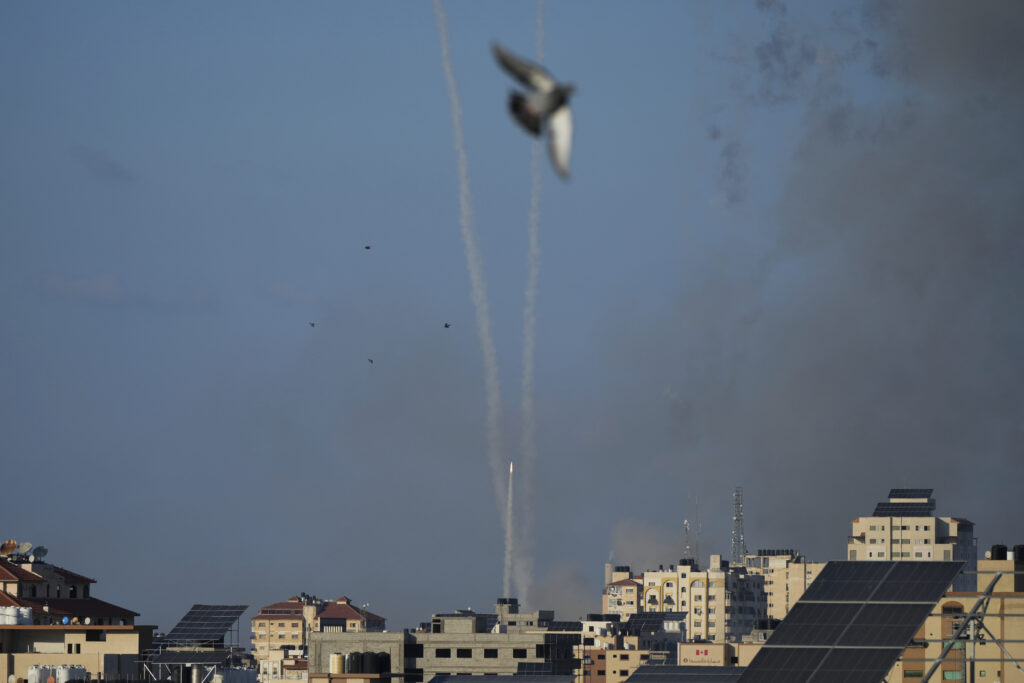The Israel-Hamas conflict in the Middle East has the attention of many West Virginians who have religious, familial, or ethnic ties to the region.
At least 1,200 Israelis have died, and Palestinian authorities say 1,055 Palestinians have died in the recent escalation of the ongoing conflict.
Spiritual leader of the B’nai Jacob Synagogue in Charleston Rabbi Victor Urecki held a service for reflection and memorial. He said he’s been talking to his family members in Israel – including one family member who is a part of the Israeli military – and others who live in Jerusalem.
“We’ve checked in on them,” Urecki said. “They’ve heard sirens and they’ve heard bombing in the background. But at least for now they feel relatively safe.”
He said as the death toll rises it gets harder and harder to process.
“Many of us are shell-shocked,” Urecki said. “We’re traumatized. We have many that have friends and family who live there.”
Urecki said there is a feeling of helplessness he and others feel living so far from the conflict.
Dr. Shadi Abo-Halima’s is a heart surgeon here in West Virginia. His family is from Palestine, but he said they moved many times moving away from Israeli expansion. Now his family lives in Jordan and the U.S.
Abo-Halima said that he is heartbroken for the loss of lives and frustrated that it has come to this point. He said there are many trigger points that the international community has ignored, and that the Palestinian people have been living under oppression.
“Unfortunately, war is war. Casualty happens for soldiers, or for militia, people understand that’s what they sign up for,” Abo-Halima said. “But when it comes to civilians it’s sad, it all just crushed my heart. And just completely unacceptable. But the problem that we’re having now is people always look at the situation that is happening now. They didn’t look at what caused all this.”
He said lasting peace involves Palestinians being treated humanely and with dignity.
“The Palestinians really want to live in peace.” Abo-Halima said.




















